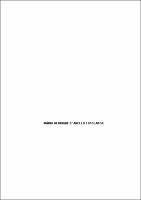Please use this identifier to cite or link to this item:
http://rima110.im.ufrrj.br:8080/jspui/handle/20.500.14407/15596| Tipo do documento: | Dissertação |
| Title: | Interpolação e regressão polinomial: uma proposta para o ensino médio com auxílio do Geogebra |
| Other Titles: | Polynomial interpolation and regression: a proposal for high school with the help of Geogebra |
| Authors: | Espolador, Mário Henrique D' Angello |
| Orientador(a): | Oliveira Júnior, Montauban Moreira de |
| Primeiro membro da banca: | Oliveira Júnior, Montauban Moreira de |
| Segundo membro da banca: | Forte, Vinícius Leal do |
| Terceiro membro da banca: | Antunes, Gladson Octaviano |
| Keywords: | Matemática;Interpolação e Regressão Polinomial;Ensino Médio;Modelagem no Ensino;Geogebra;Mathematics;Polynomial Interpolation and Regression;High School;Modeling in Teaching;Geogebra |
| Área(s) do CNPq: | Matemática |
| Idioma: | por |
| Issue Date: | 2-Dec-2022 |
| Publisher: | Universidade Federal Rural do Rio de Janeiro |
| Sigla da instituição: | UFRRJ |
| Departamento: | Instituto de Ciências Exatas |
| Programa: | Programa de Pós-Graduação em Matemática em Rede Nacional |
| Citation: | ESPOLADOR, Mário Henrique D' Anello. Interpolação e regressão polinomial: uma proposta para o ensino médio com auxílio do Geogebra. 2021. 83f. Dissertação (Mestrado em Matemática em Rede Nacional) - Instituto de Ciências Exatas, Universidade Federal Rural do Rio de Janeiro, Seropédica, 2021. |
| Abstract: | Este trabalho tem como objetivo trazer uma proposta de ensino de interpolação e regressão polinomial para turmas do ensino médio. Dessa forma, toda parte teórica tem como referência os Parâmetros Curriculares Nacionais (PCN) e autores como Biembengut (2014), Ruggiero (2000), entre outros. Com isso, o trabalho será fundamentado por métodos de interpolação como Lagrange e Newton, estudo de erro, escolha do grau do polinômio interpolador, fenômeno de Runge, interpolação inversa e regressão polinomial pelo método de mínimos quadrados. Além disso, a área de educação matemática também entrará na fundamentação do trabalho através da história, modelo, modelagem e modelagem como método de ensino, juntamente com o auxílio de softwares educacionais no ensino de matemática, neste caso, o Geogebra. Por fim, será apresentada uma sequência de exemplos que podem ser trabalhados, discutidos, propostos em projetos de pesquisa e em aulas interdisciplinares nas turmas do ensino médio, utilizando e comparando conceitos de interpolação e regressão polinomial. Nesse caso, as atividades se resumem em estudos atuais e problemas do nosso cotidiano como a curva de contaminação pela Covid-19, problemas com o aumento da população carcerária do Brasil, estimativa do consumo de combustível de um automóvel e projeções sobre a demografia brasileira. |
| Abstract: | This work aims to bring a proposal for teaching interpolation and polynomial regression for high school classes. In this way, every theoretical part has as reference the National Curriculum Parameters (PCN) and authors such as Biembengut (2014), Ruggiero (2000), among others. With this, the work will be based on interpolation methods such as Lagrange and Newton, error study, choice of the degree of the interpolator polynomial, Runge phenomenon, inverse interpolation and polynomial regression by the least squares method. In addition, the area of mathematical education will also enter into the foundation of work through history, model, modeling and modeling as a teaching method, together with the help of educational software in the teaching of mathematics, in this case, Geogebra. Finally, a sequence of examples that can be worked on, discussed, proposed in research projects and in interdisciplinary classes in high school classes will be presented, using and comparing concepts of interpolation and polynomial regression. In this case, the activities are summarized in current studies and problems in our daily lives, such as the contamination curve by Covid-19, problems with the increase in the prison population in Brazil, an estimate of the fuel consumption of a car and projections on the Brazilian demography. |
| URI: | https://rima.ufrrj.br/jspui/handle/20.500.14407/15596 |
| Appears in Collections: | Mestrado Profissional em Matemática em Rede Nacional |
Se for cadastrado no RIMA, poderá receber informações por email.
Se ainda não tem uma conta, cadastre-se aqui!
Files in This Item:
| File | Description | Size | Format | |
|---|---|---|---|---|
| 2021 - Mário Henrique D’ Anello Espolador.pdf | 2021 - Mário Henrique D’ Anello Espolador | 2.5 MB | Adobe PDF |  View/Open |
Items in DSpace are protected by copyright, with all rights reserved, unless otherwise indicated.

